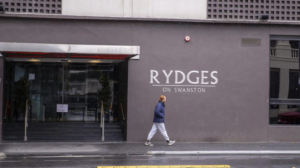Home » Commentary » Opinion » The Victorian hotel quarantine scandal inquiry: more tricks and delays
· Online Opinion
 The public will have to wait an extra six weeks to November 6 for answers from the Andrews government’s independent inquiry into the hotel quarantine scandal; mainly because departments have not responded as quickly as they should have to requests for information.
The public will have to wait an extra six weeks to November 6 for answers from the Andrews government’s independent inquiry into the hotel quarantine scandal; mainly because departments have not responded as quickly as they should have to requests for information.
As inquiry chair Jennifer Coate complained this last week, while acknowledging the impact of the lockdown:
Despite requests by the Inquiry legal team and detailed protocols about how categories of documents were to be electronically provided, there has been a variance in compliance amongst departments and entities with how this has been done.
From the outset, the Andrews government has sought to manipulate this inquiry for its own politically expedient reasons.
By persistently labelling the investigation a “judicial inquiry”, the government has deliberately sought to give the false impression that it was part of the judicial system, and therefore prevented government ministers from answering legitimate questions about the scandal.
Just this week, Victorian Health Minister Jenny Mikakos responded to a question-on-notice that as the inquiry was “part of that formal judicial process. We will not be providing a commentary while the Inquiry is ongoing.”
Ms Coate corrected the Minister’s inaccuracy and issued the following statement:
This Board of Inquiry is not a court. Under law, unlike a court, there is no general restriction or prohibition which would prevent a person from commenting publicly or answering questions to which they know the answers on matters which are the subject of examination by this Board of Inquiry.
In fact, as the Victorian Premier and Health Minister should know, there is no such thing as a “judicial inquiry” in Westminster democracies.
Public inquiries – whether royal commissions or boards of inquiry, and whether chaired by judges or ex-judges – are arms of executive government, appointed by executive government and report to executive government.
Inquiries are not part of the judiciary. They do not make judgements – only recommendations – and operate under completely different procedures and rules of collecting evidence than courts.
By initially describing the chair as “Justice Coate” who had been a member of the Federal Court, the Victorian government sought to insinuate that the inquiry was part of the “judicial process” and more independent than it really was.
In fact, Ms Coate was not only not a member of the Federal Court, but rather a member of the Family Court. However, as a retired judge she is not entitled to the designation of “Justice” in any formal role.
The Victorian Law Foundation’s guidelines on referring to retired judges makes this clear. This is not a mere technicality or innocent mistake because the Andrews government has kept claiming – even this week – that they have established a “judicial inquiry”.
Public inquiries can be used for legitimate purposes to provide independent advice, to clarify facts, and to allocate responsibility.
However, as seems the case with the Andrews government with this inquiry, they can also be used for politically expedient reasons of being seen to ‘do something’, to minimise blame, delay decisions, and get a government off the hook.
When establishing the inquiry, Premier Andrews stated that “it is abundantly clear that what has gone on here is completely unacceptable and we need to know exactly what has happened.”
It certainly was. And we certainly do.
The Andrews government’s obfuscation has to stop and the inquiry be given the level of cooperation it deserves, so the public might at last “know exactly what has happened” – and even more importantly, who was responsible for the scandal that has affected so many lives.
The Victorian hotel quarantine scandal inquiry: more tricks and delays